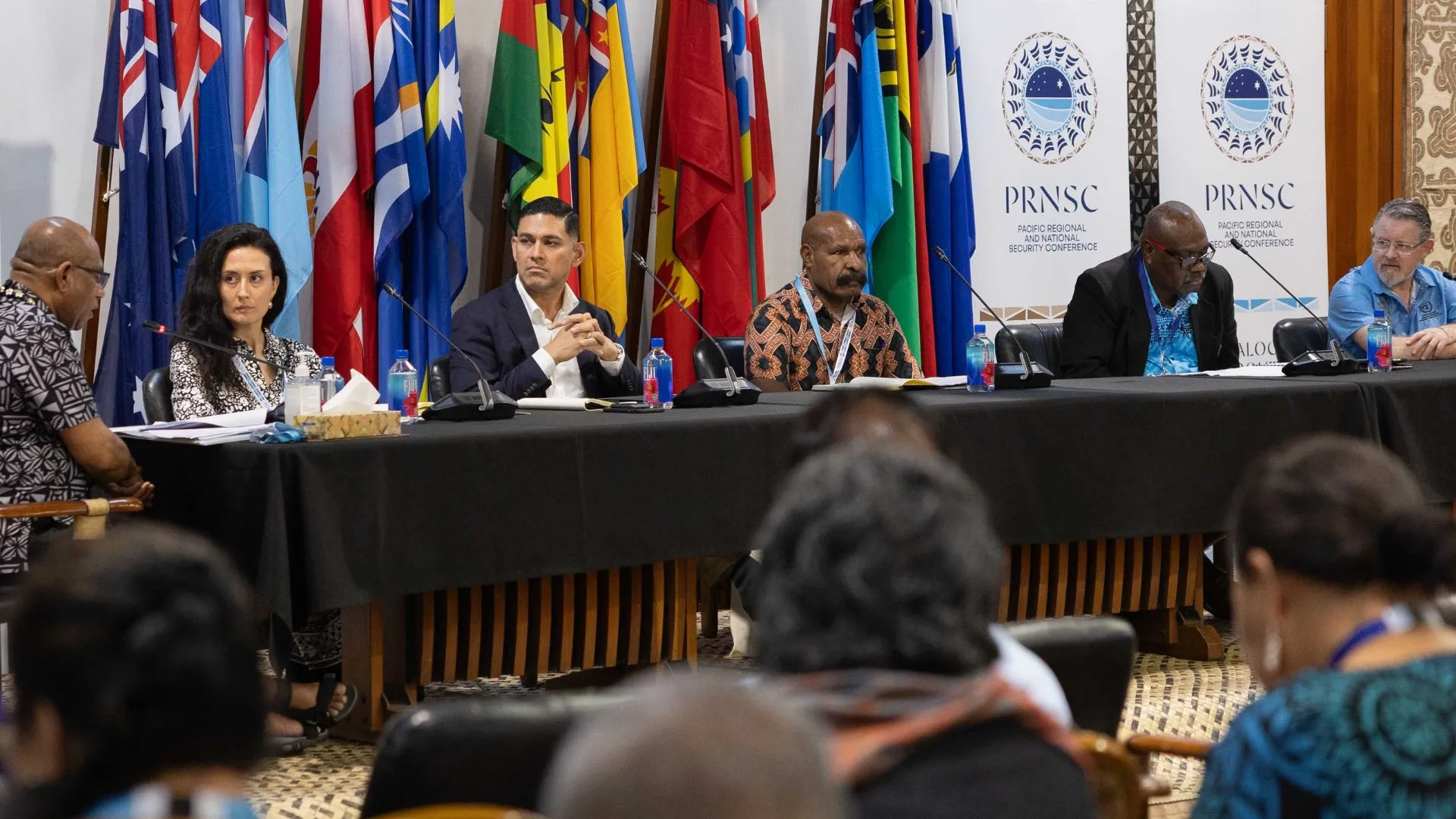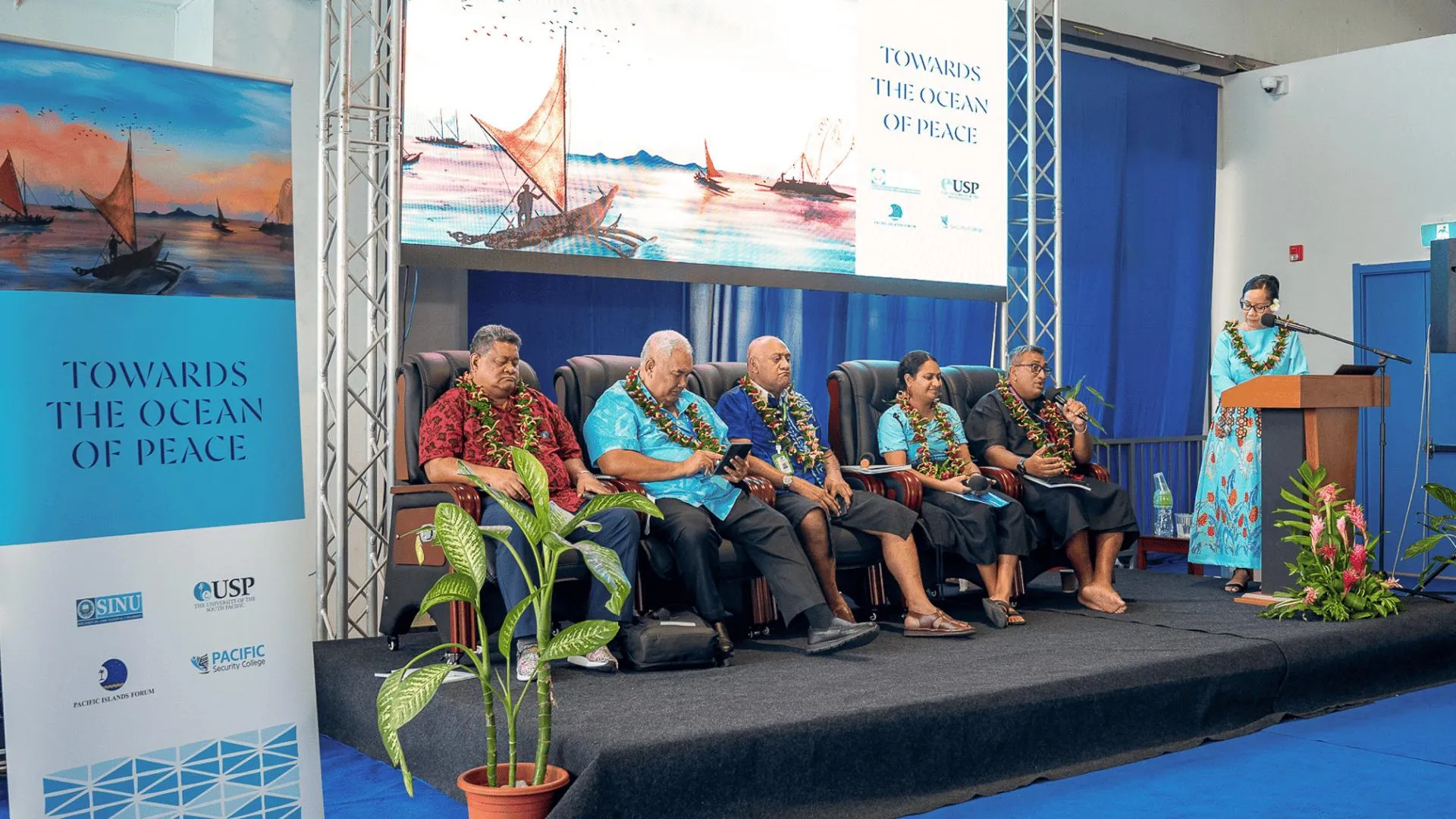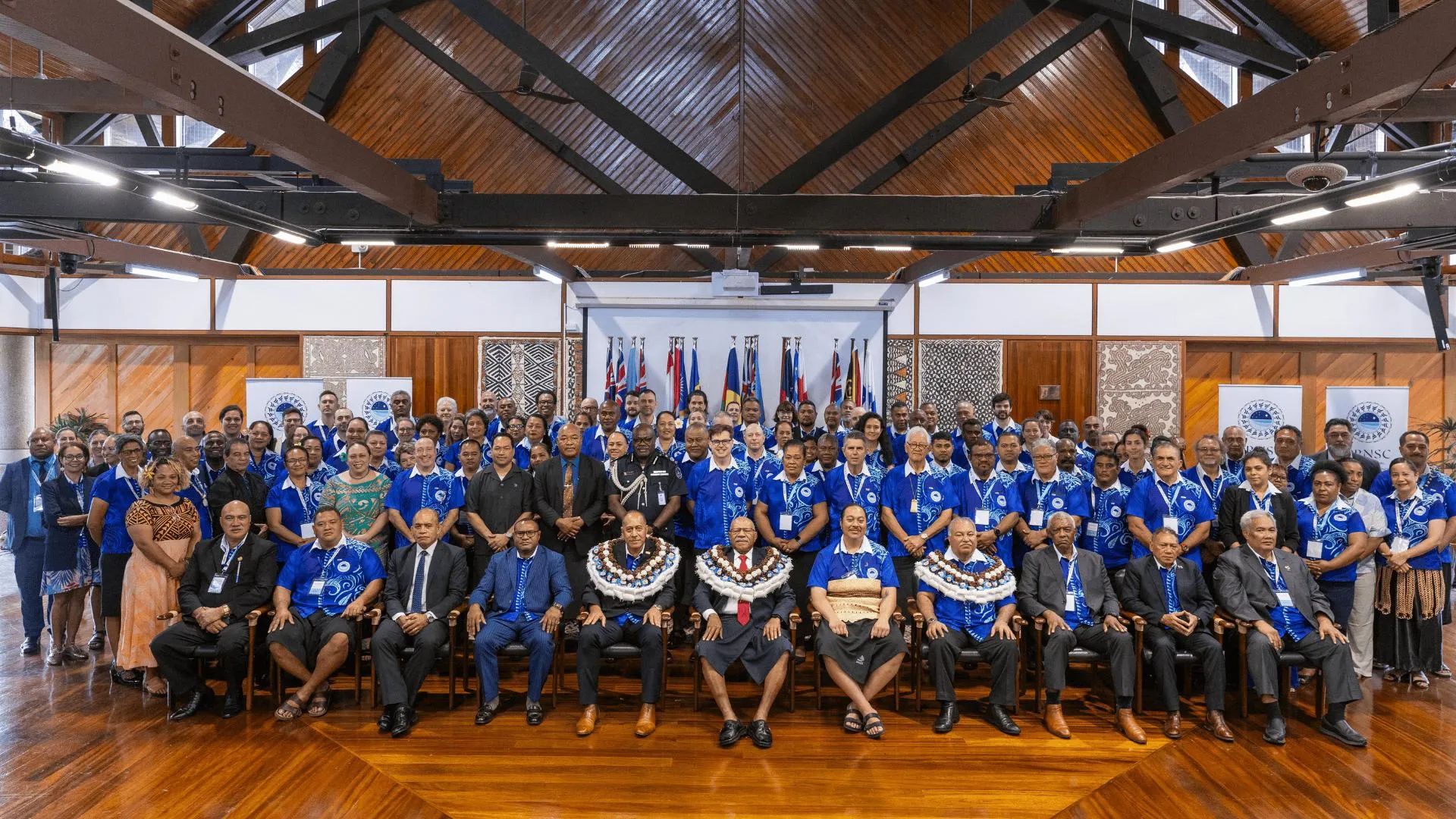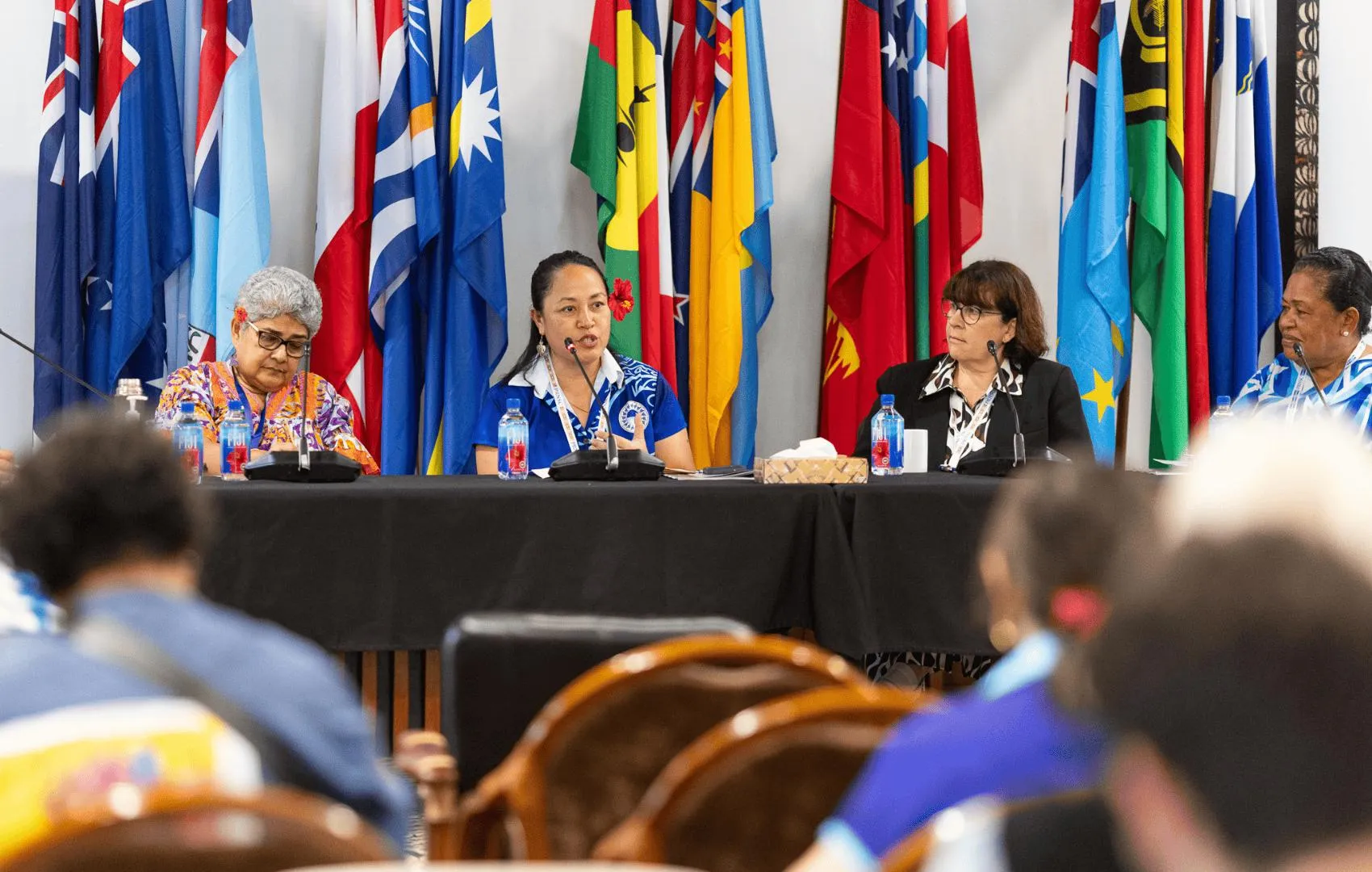Pacific security leaders confront methamphetamine crisis at Regional Security Conference

Transnational crime and national security: the methamphetamine crisis panel at the Pacific National Security Conference
The region’s escalating methamphetamine crisis was a key focus at the Pacific Regional and National Security Conference today, as law enforcement leaders and regional stakeholders tackled the transnational nature of the threat in a high-level session on transnational crime and national security.
The panel included Fiji’s Police Commissioner Rusiate Tudravu, Deputy Commissioner of the Royal Papua New Guinea Constabulary, Donald Yamasombi, Australian Federal Police Assistant Commissioner (Pacific Command) Nigel Ryan, Dr Jason Mitchell from the Fiji HIV National Outbreak Cluster Response Taskforce, and Virginia Comolli, Head of the Pacific Programme at the Global Initiative Against Transnational Organised Crime.
The session highlighted that methamphetamine is no longer just a foreign threat, and how it has become a domestic crisis, threatening the social fabric, health systems, and security infrastructure of Pacific nations.
“The fight is real, the fight is on our shores, and the fight is within,” said Commissioner Tudravu.
“Transnational organised crime groups see our region as vulnerable … They are no longer bypassing our islands. They are targeting them.”
Deputy Commissioner Yamasombi said Papua New Guinea (PNG) now sees itself as a key transit point due to its geographic location. “We are strategically located, just 30 minutes from the Australian coastline,” he said.
“As I sit here this morning and talk to you, back home we’ve got an operation going on. Code name Operation KTV – it’s actually derived from the packaging they use for cocaine. On the first of July, we actually busted 60 kilograms of cocaine. We believe there is about three tonnes of illicit drugs stockpiled in-country, ready to be moved across the seas into Australia and New Zealand.”
He warned of the growing risk to PNG’s youth population. “The biggest concern we have is when people are in possession of these illicit substances, the excess of these drugs getting into the hands of the young population is very highly likely. If our young generation indulges in such activities, what sort of a future do we have? Are we going to have substance users as future leaders or workers in our industries?”
He also pointed to successful joint operations with international partners.
“We’ve seen black flights into the country. In 2021, we stopped an import of methamphetamine from the US to PNG — that joint operation with Homeland Security, AFP, and PNG police convinced our politicians to pass the Controlled Substances Act 2021.”
Assistant Commissioner Nigel Ryan agreed, stating: “The problem has been that those drugs were destined historically for Australia, but we’re actually seeing more of the product being left in the Pacific and that’s where you start to see the damage and harm that these drugs do in our communities.
“It’s not just a law enforcement problem, because you’re never going to arrest your way out of a problem like this. It’s actually a problem that needs to be dealt with much more holistically in terms of law enforcement, health, legislators, academia, and educating the community.”
Dr Mitchell highlighted the human cost of inaction. “What we’re now seeing is that drug use is no longer a fringe problem. It’s connected to rising HIV, hepatitis C, tuberculosis, and domestic violence. Communities are breaking down under the weight of untreated addiction and disease,” he said.
He called for urgent implementation of harm reduction strategies such as needle and syringe programs, noting that, “We have seen the health consequences of methamphetamine … and we are behind the curve.”
Ms Comolli said the region must move beyond isolated national responses and work towards a unified strategy.
“If we do not start thinking regionally and resourcing locally, we are going to lose this fight. The meth trade is outpacing our current responses,” she warned.
The panellists collectively emphasised the need to align responses with the Boe Declaration on Regional Security, which calls for expanded definitions of security to include human and environmental wellbeing.
Speakers also referenced the 2050 Strategy for the Blue Pacific Continent as a blueprint for a safe, secure, and resilient region.
“The 2050 Strategy gives us the vision, but now we need the tools,” said Dr Mitchell. “That includes real-time data, harm reduction programs, and law enforcement that works with, not against, health interventions.”
The session highlighted the importance of integrated strategies, community education, intelligence sharing, and stronger cross-border enforcement to disrupt criminal networks.
“We must embrace regional solidarity,” Ms Comolli said. “We are stronger when we work together: law enforcement, civil society, and the health sector.”
Commissioner Tudravu closed the session with an urgent message. “Let us not wait until it is too late. This is our Pacific, and we must defend it together.”
About the Pacific Regional and National Security Conference
Set against the backdrop of the Boe Declaration on Regional Security and the 2050 Strategy for the Blue Pacific Continent, the Pacific Regional National Security Conference (PRNSC) is one of the region’s largest gatherings of the national security community from across Forum Island Countries. Presented by 11 organisations, including the Pacific Security College, the conference provides expert updates and insights on key security issues outlined in the Boe Declaration, including climate change, human security, transnational crime and cybercrime.


